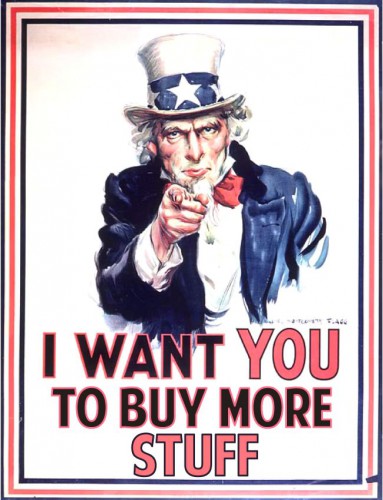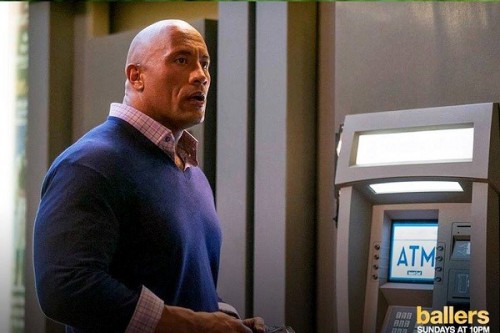
This is the third installment of author Ted Scofield’s series on everybody else’s biggest problem. To start from the beginning, go here. To read the second installment go here.

When the people feared that Moses had abandoned them to die in the desert, they gathered around Aaron and said, “Come, make for us gods!” and from their jewelry Aaron forged a golden calf, and they worshipped it.
Wayne Rauh and his wife D’Ann own eighty Dodge Vipers, including one that is painted gold, “the only gold Viper in the world.”
It’s likely the Rauhs have spent well over $7 million for their Vipers and certainly they could sell the cars for a sum in excess of $4 million.
When I read about the Rauhs’s “addiction” in the Wall Street Journal, for their sake I assumed they’re collectors. Then I reached the final sentence of the article: “People think that we’re collectors, but we’re not. We just love the Viper, and what it stands for.”
D’Ann Rauh reports that she actually drives all of her beloved Vipers, except one, a very special car, and it’s painted gold.
***
When I ask people “What is greed?” – and admittedly I do so far too often – typically the first concept articulated involves the notion of abundance.
Greed is when you have too much stuff (which only money can buy), or place too much importance on stuff, or spend too much time pursuing or wanting or envying stuff.
A college student told me, “When people are sleeping on the street and you have a Mercedes and four empty bedrooms in your McMansion, then you are greedy.”
The late George Carlin might agree:
That’s the whole meaning of life, isn’t it? Trying to find a place for your stuff…That’s all your house is – a place to keep your stuff while you go out and get more stuff. Sometimes you’ve got to move, you’ve got to get a bigger house. Why? Too much stuff!
Sure enough, we Americans are not filling our houses with people. In 1950, the average home size was 983 square feet and 3.37 people lived in it. By 2009, the average home’s square footage has ballooned to 2,700 with only 2.57 occupants.
Contemplate that for a moment.
And let me do the math for you. In 59 years, the average American home grew by 175% while the average family size shrunk by 24%.
Yes indeed, we love buying lots of stuff, but we also love getting the stuff. As reported in the book Affluenza, American parents spend six hours a week shopping and forty minutes a week playing with their children. A whopping 93% of teen girls rate “shopping” as their favorite activity.
[youtube=https://www.youtube.com/watch?v=s6YVZehzuLc&w=600]
Perhaps we are the victims of mixed messages. On the one hand, most of us agree that having too much stuff – the other guy, not me of course – is a sign of greed, but on the other hand, we constantly hear that our economy is driven by consumer spending. It is practically our civic and patriotic duty to spend, to shop, to buy lots and lots of stuff. The health of our economy – nay, our nation! – depends on it.
I’ll never forget, a few weeks after 9/11, Mayor Giuliani declared on national television, “New York City is open for business.” It was truly a tear-inducing moment hopefully never to be repeated.
But what was Rudy really saying? “Come to New York and buy our stuff.”
When are we told that having too much stuff is bad, or wrong, and by whom?
Well, the Dalai Lama cautions against “excessive materialism.” But what is excessive? Is it possible for us to agree on an appropriate definition of “excessive”?
Pope Francis recently said “having more, having more, having more … destroys your relationships with other.” But how? Why? “Every kiss begins with Kay,” doesn’t it?
Jesus warns his followers: “Watch out! Be on your guard against all kinds of greed; life does not consist in an abundance of possessions.” But what exactly is an abundance? How much is too much?
A number of studies have been conducted recently on CEO greed. “In their studies researchers offer plenty of evidence that some leaders are insatiable when it comes to compensation. How much is too much? They don’t put a number on that.”
They don’t put a number on that.
Why not? One of the university researchers provides an answer: “It’s not for us to judge what too much is for anybody else.”
Publicly – in writing – I’d suggest that may be true. But I also argue that privately the professors, like most all of us, are quite willing to judge how much is too much and, for most of us, the answer is “too much is more than I have.”
And therein resides the point of this discussion. We all have a well-defined yet ultimately vague notion that abundance is a symptom of greed, but collectively we will never agree on how much is too much, simply because it’s the other guy who has too much, not us. One end of the political spectrum rages that hedge funders and corporate fat cats have far too much money and are greedy (and evil). The other end argues that welfare recipients with iPhones, HBO and a pint of ice cream are greedy (and lazy) because they spend taxpayers’ money on stuff they could live without.
But what about the vast majority of us in the middle? What about you? What about me? Does the abundance of what we possess render us greedy?
 Let me make it personal. My wife and I live on the Upper East Side of Manhattan in a doorman building. Our apartment is about 1000 square feet. We don’t own a car, much less a fancy car, but we spend a small fortune on rent. Certainly we could move to a smaller, less expensive apartment, perhaps even in a less expensive city, and we could give the surplus cash to those in need. We choose not to do so. Do we have too much? Are we greedy?
Let me make it personal. My wife and I live on the Upper East Side of Manhattan in a doorman building. Our apartment is about 1000 square feet. We don’t own a car, much less a fancy car, but we spend a small fortune on rent. Certainly we could move to a smaller, less expensive apartment, perhaps even in a less expensive city, and we could give the surplus cash to those in need. We choose not to do so. Do we have too much? Are we greedy?
How about a middle class suburban family with two new cars, three kids, living in a four bedroom house? Surely the children could share bedrooms and one spouse could take the bus to work, right? The money saved could shelter and feed a dozen urban homeless (not to mention the ancillary benefits of reduced CO2 emissions and lower entitlement spending). But the family really enjoys the big house, the new Jeep Cherokee and Toyota Camry. Greed?
I can’t begin to tell you the answer and, frankly, just thinking about it makes me uncomfortable. Let’s be honest, what percentage of Americans could not downsize, reduce spending, sell stuff, and give more to our neighbors in need?
What decent human being disagrees with Saint John Chrysostom when he said “Not to share one’s goods with the poor is to rob them and deprive them of life”?
How much is too much?
***
In the 1981 film Modern Problems, Dabney Coleman is Dr. Mark Winslow, an arrogant, obnoxious, best-selling author. After being humiliated by Chevy Chase’s character, Mark decides to drown himself in the tumultuous moonlit ocean.
As he walks into the waves, his love interest shouts: “Mark! No, don’t kill yourself! You love yourself too much! You dedicated all of your books to yourself!”
Mark ignores her and keeps pushing into the crashing surf, determined to die.
“For God’s sake, Mark, you just bought yourself a new Porsche!”
Mark abruptly turns around and starts back for the safety of the beach. He is saved.
I bet the Porsche was gold.
[youtube=https://www.youtube.com/watch?t=67&v=GlRQjzltaMQ&w=600]

COMMENTS
5 responses to “Everybody Else’s Biggest Problem, Pt. 3: How Much Is Too Much?”
Leave a Reply














The thought was that publicizing CEO pay would shame people but all it did was lead to CEOS being more competitive about salaries. #thelawofunintendedconsequences
CEO compensation is in the news today. The SEC says: For fiscal years beginning on or after Jan. 1, 2017, U.S. public companies will be required to disclose (1) the median of the annual total compensation of all employees of the company and its consolidated subsidiaries (except the CEO), (2) the annual total compensation of the CEO, and (3) the ratio of these two amounts.
The belief if that this publicly available ratio of CEO pay to rank-and-file pay will force companies to lower CEO pay (or possibly raise rank-and-file pay?).